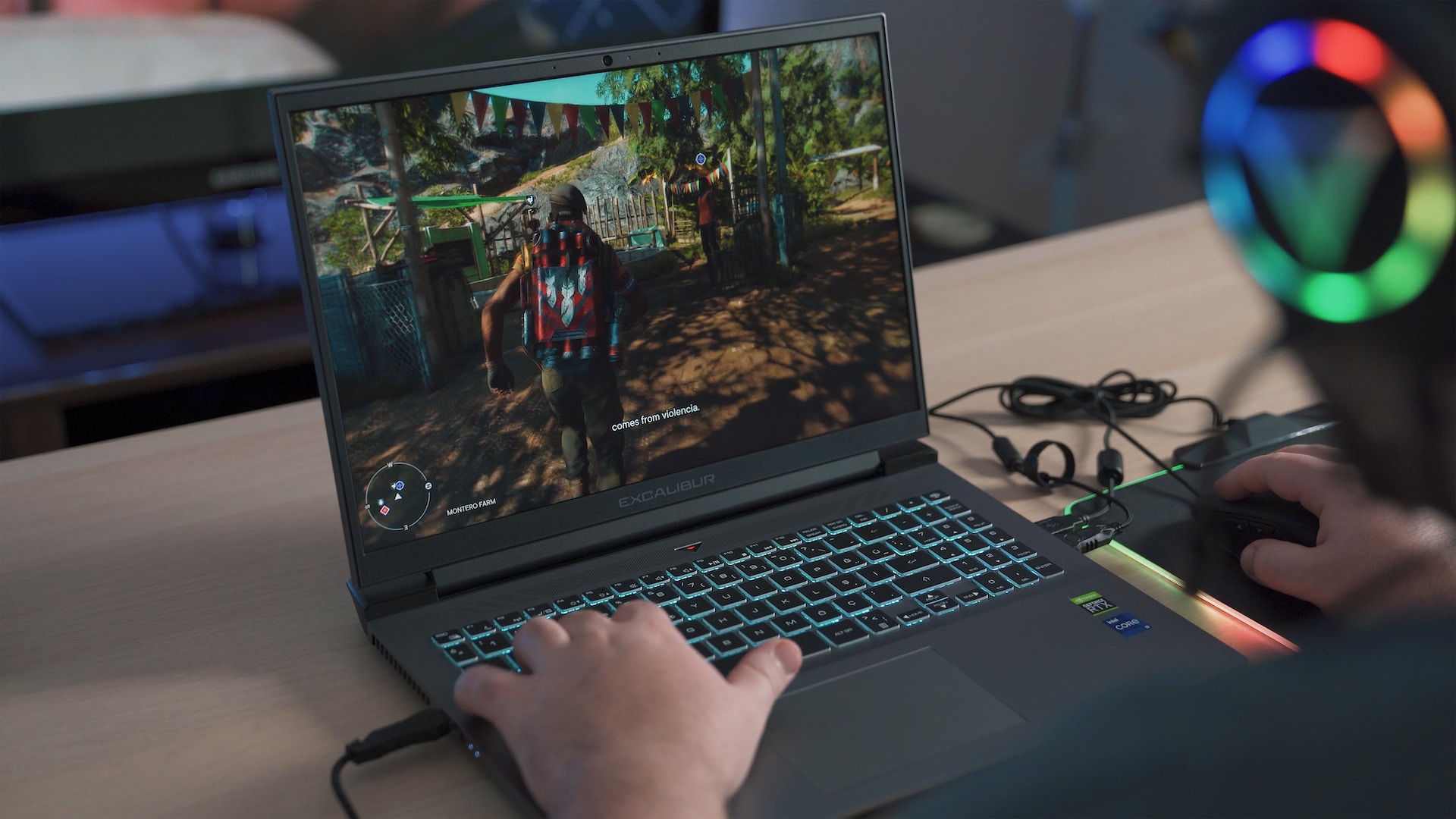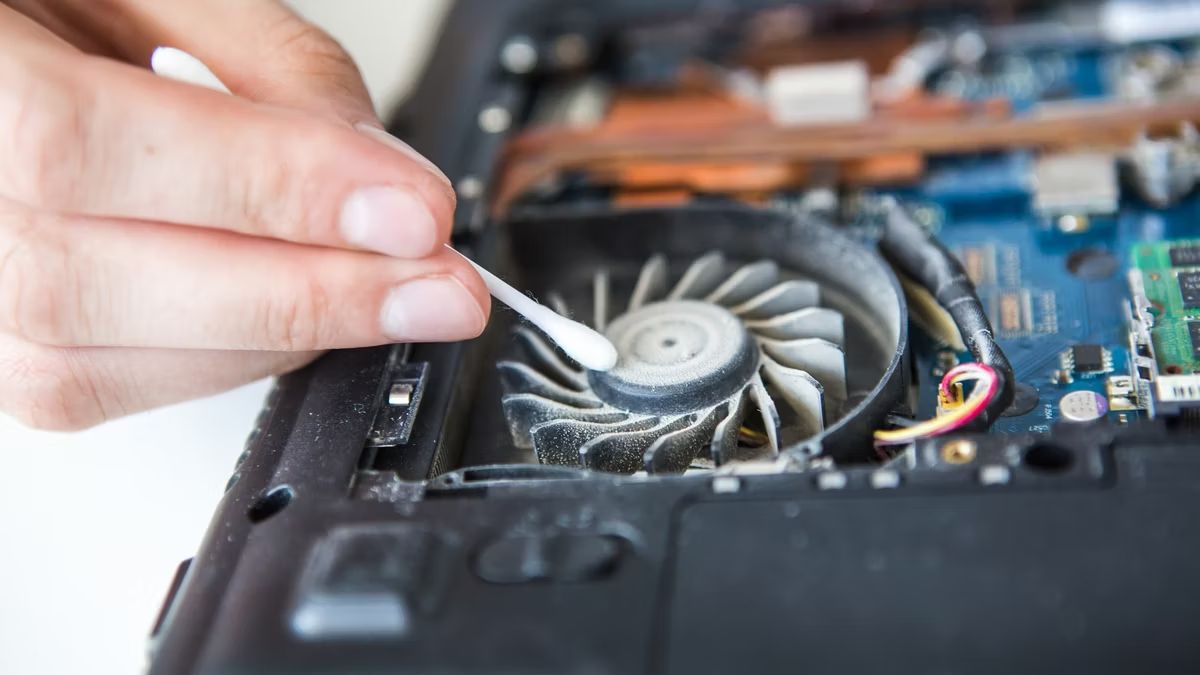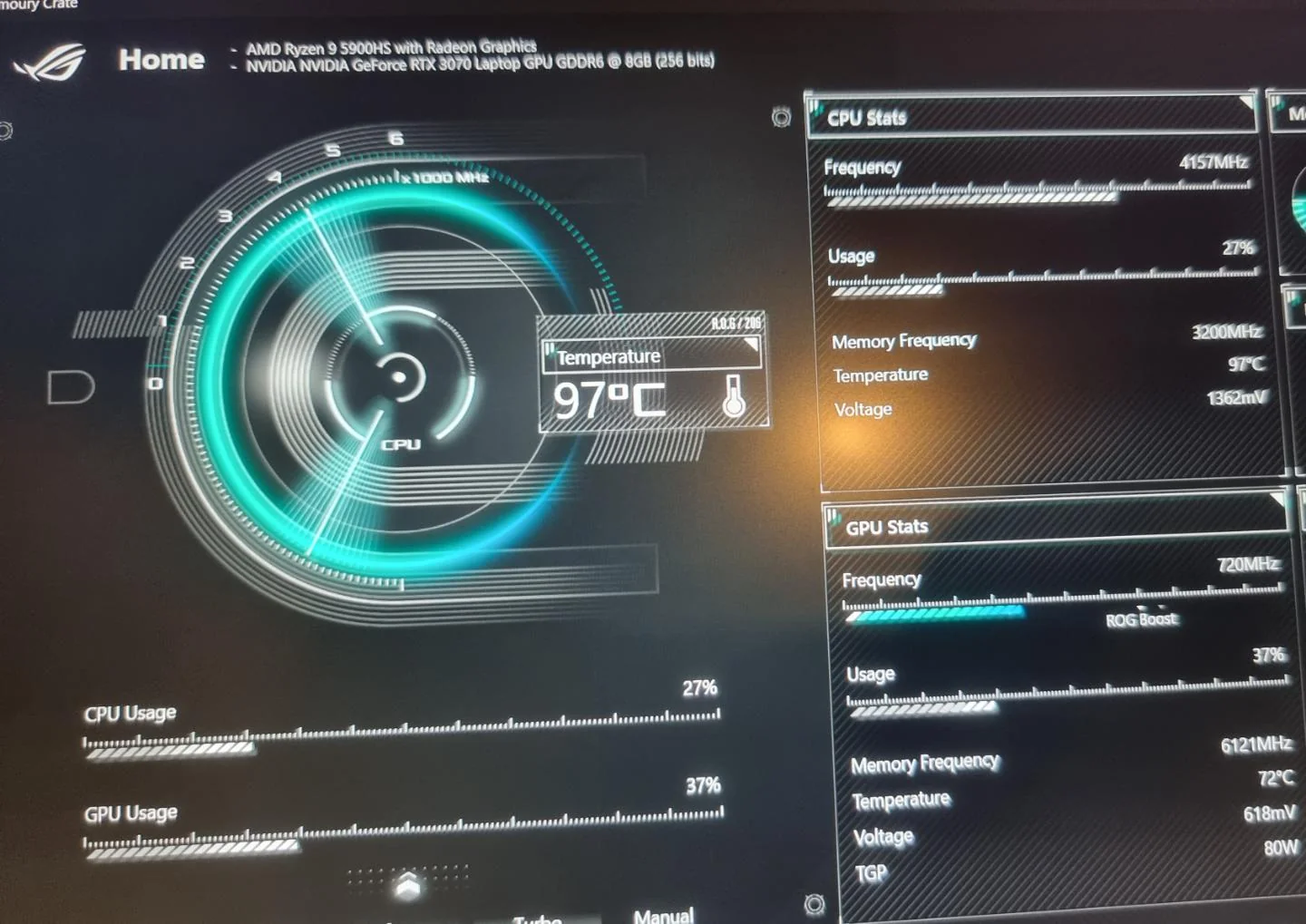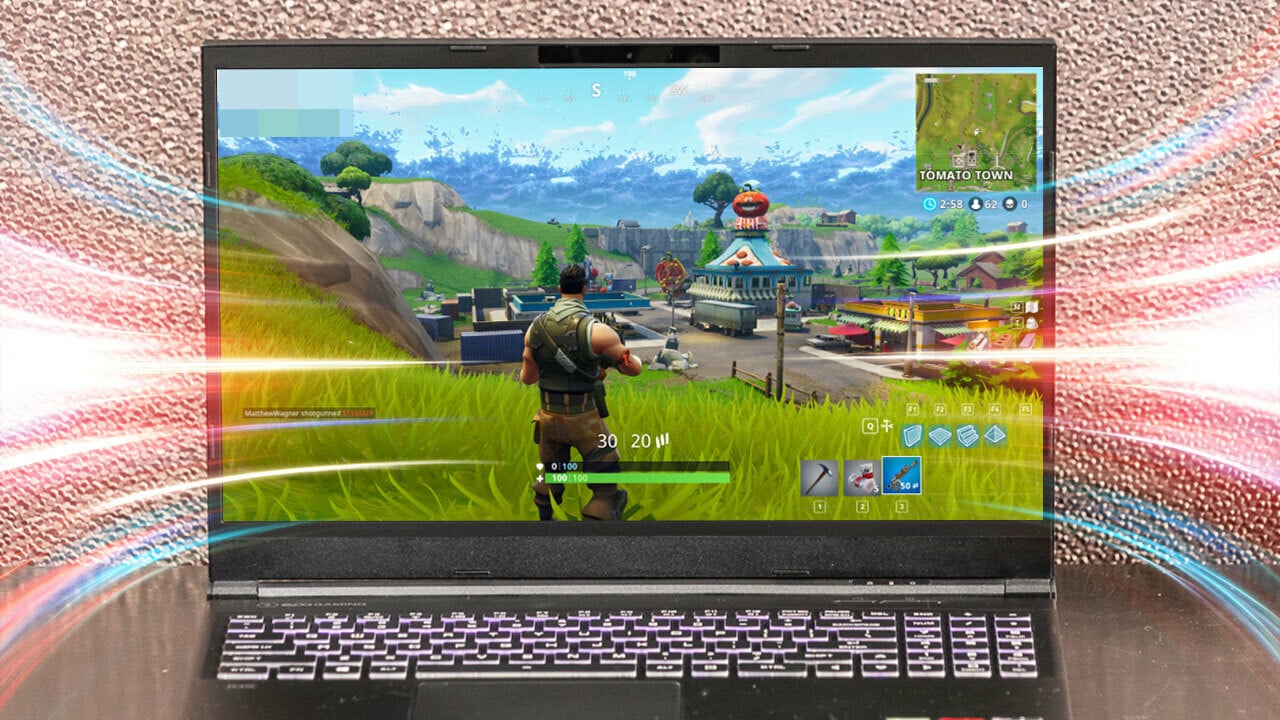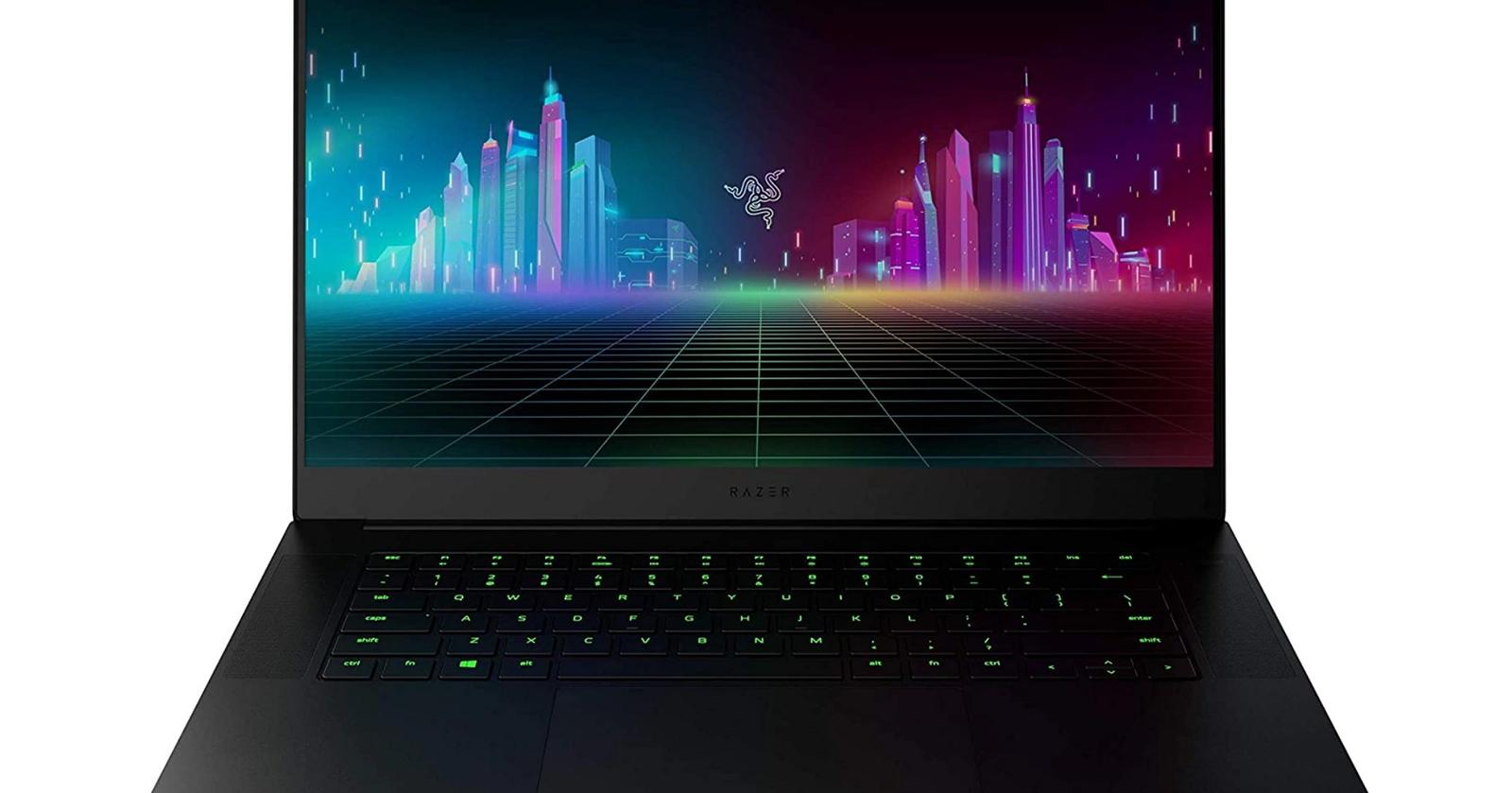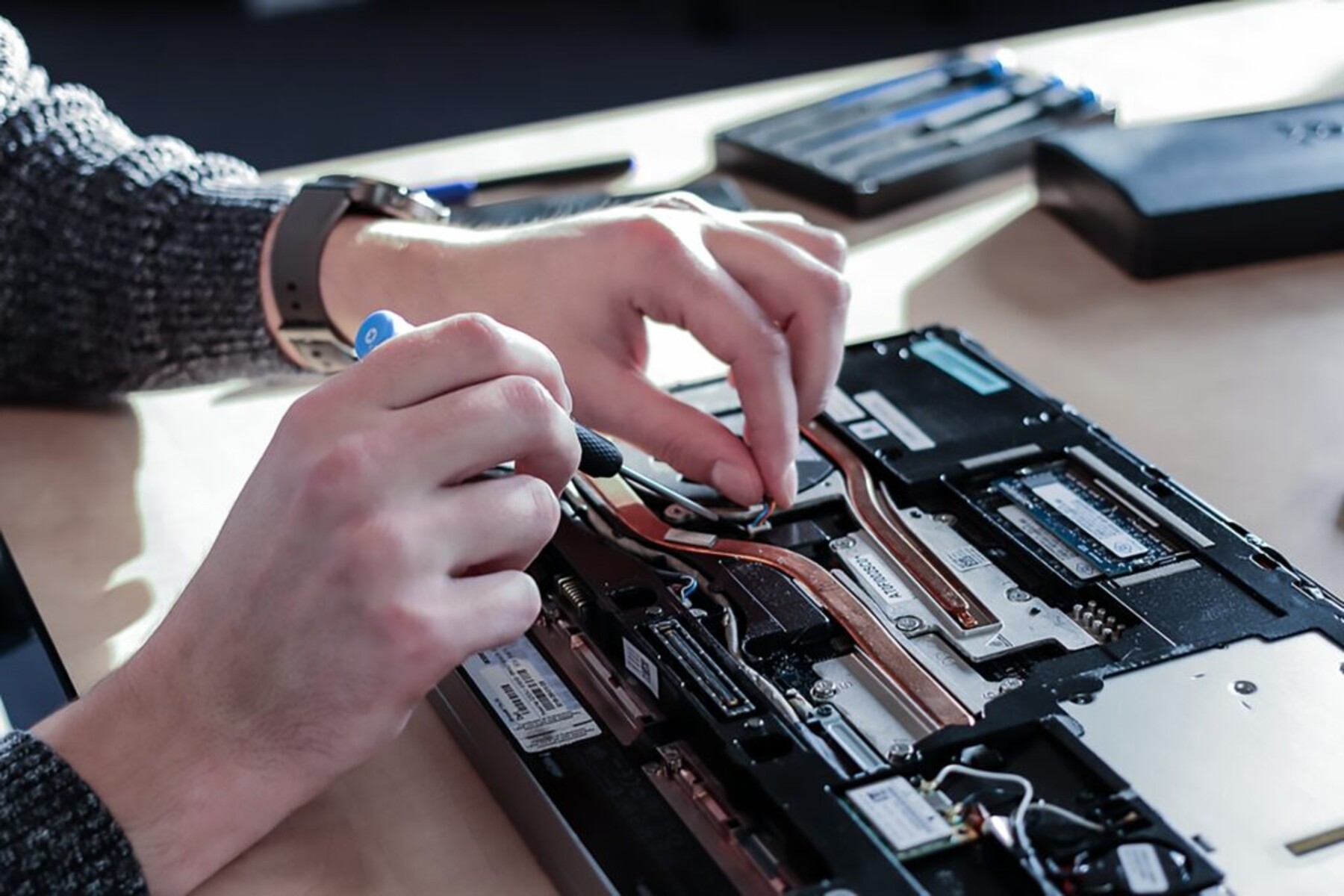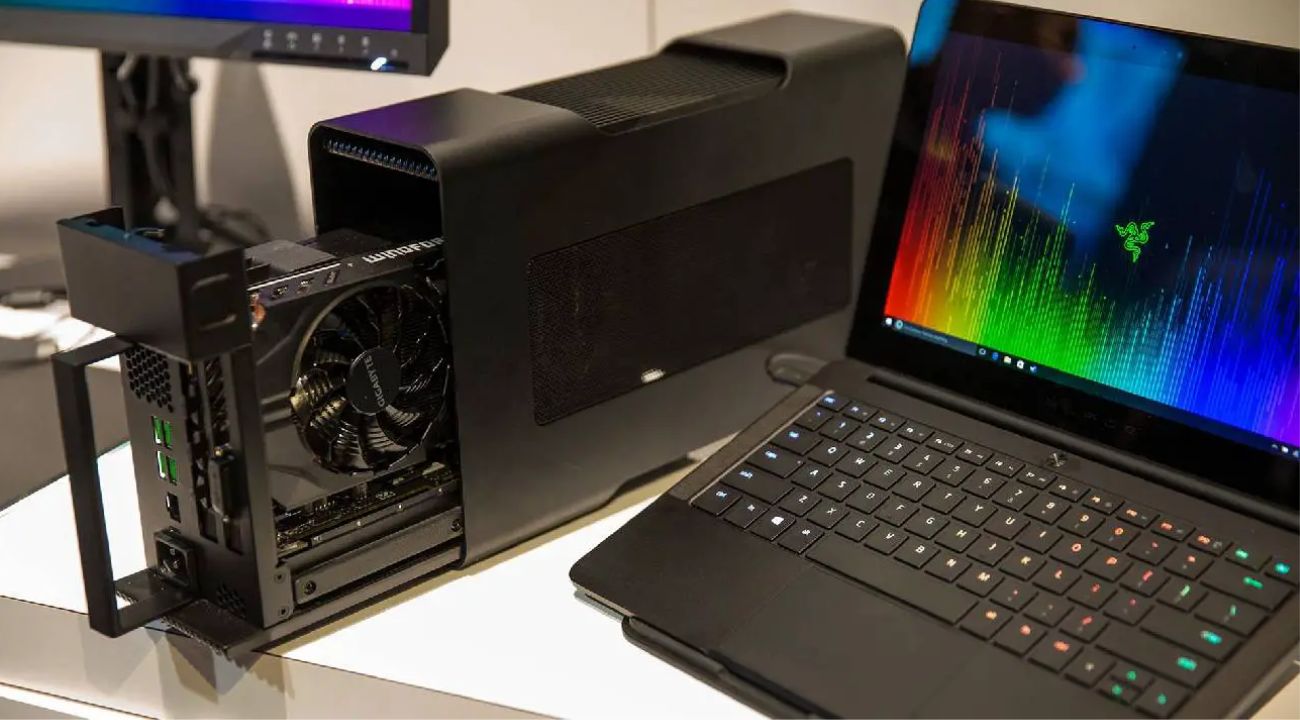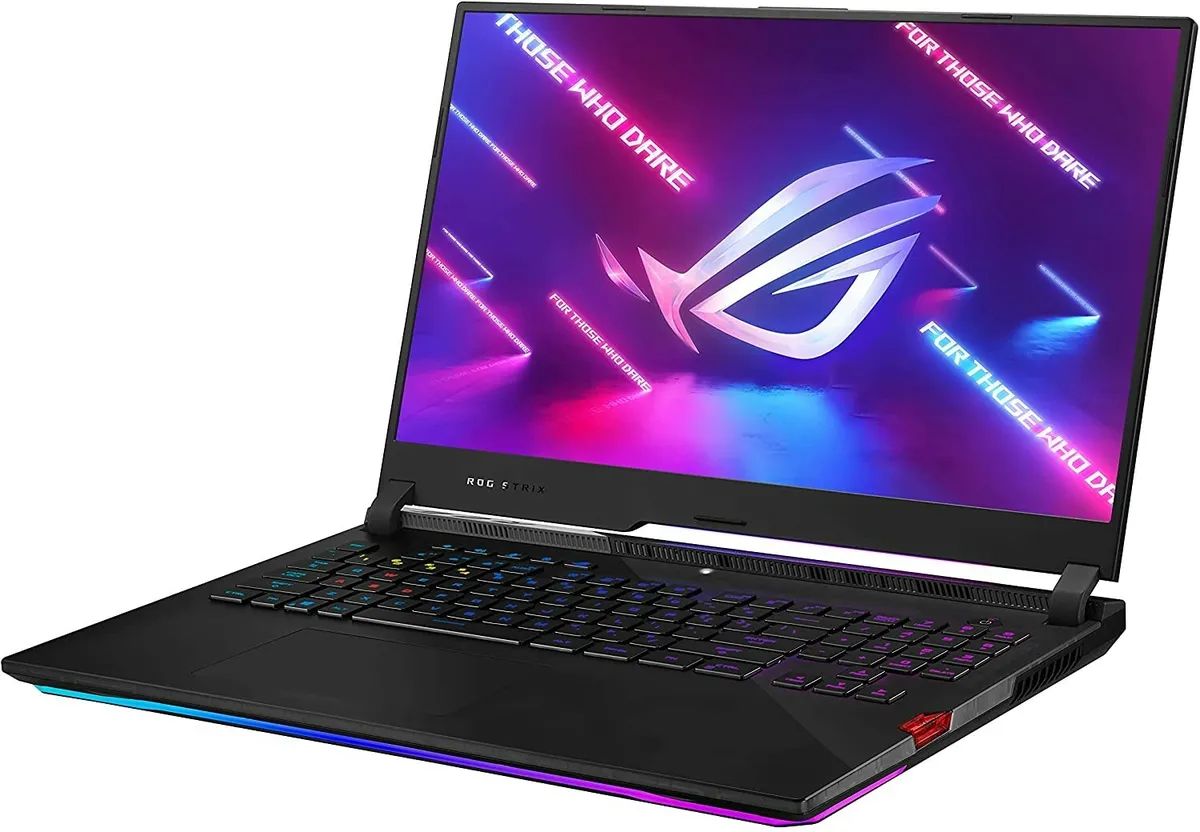Introduction
Gaming laptops are an essential tool for avid gamers who want to fully immerse themselves in the virtual gaming world. These high-performance machines provide the speed, graphics, and power needed to run the latest and most demanding games. However, despite their impressive capabilities, gaming laptops can sometimes experience crashes, leaving gamers frustrated and questioning why their prized device keeps failing them.
Crashes are not uncommon in the world of gaming laptops. They can occur for various reasons, ranging from hardware issues to software problems. Understanding the common causes of crashes is essential in diagnosing and resolving the issue. By identifying the root cause, gamers can take appropriate steps to prevent future crashes and ensure a smooth gaming experience.
In this article, we will delve into the different factors that can cause a gaming laptop to crash. We will explore issues such as overheating, insufficient memory, outdated drivers, malware and virus attacks, hardware problems, and power supply issues. Additionally, we will provide practical tips and solutions to help prevent crashes and optimize the performance of your gaming laptop.
Whether you’re a casual gamer or a hardcore enthusiast, understanding the reasons behind your gaming laptop crashes is crucial. By being proactive and implementing preventative measures, you can minimize disruptions and get the most out of your gaming experience. So, let’s dive in and uncover why your gaming laptop keeps crashing and how to address the underlying causes.
Common Causes of Crashes
Gaming laptops are complex machines that rely on a combination of hardware and software components to deliver high-performance gaming experiences. Unfortunately, these components can sometimes fail or become outdated, leading to crashes. Understanding the common causes of crashes can help you identify the underlying issue and take appropriate action to resolve it.
Here are some of the most common causes of crashes in gaming laptops:
- Overheating Issues: One of the primary culprits behind gaming laptop crashes is overheating. Intense gaming sessions can put a significant strain on your laptop’s cooling system. If the internal temperature rises too high, it can lead to system instability and crashes. Dust buildup on the cooling fans or a malfunctioning cooling system can exacerbate this issue.
- Insufficient Memory: Gaming requires a significant amount of memory to handle the complex graphics, audio, and game logic. If your laptop does not have enough RAM (Random Access Memory), it can result in crashes and performance issues. Insufficient memory can cause the game to lag, freeze, or crash altogether.
- Outdated Drivers: Drivers are software programs that facilitate communication between your operating system and the hardware components of your gaming laptop. Outdated or incompatible drivers can lead to crashes as they may not be able to properly handle the demands of modern games. Keeping your drivers updated is crucial for ensuring stability and optimal performance.
- Malware and Virus Attacks: Malware and viruses can wreak havoc on your gaming laptop. They can corrupt system files, steal your personal information, and cause crashes. If you notice sudden crashes or unusual behavior, it’s essential to run regular antivirus scans and keep your security software up to date.
- Hardware Problems: Faulty hardware components, such as a failing graphics card or a malfunctioning hard drive, can cause crashes in gaming laptops. These issues may require professional diagnosis and repair.
- Power Supply Issues: A stable power supply is essential for gaming laptops. Fluctuations in power, insufficient wattage, or loose power connections can cause crashes or unexpected shutdowns. Make sure to use a reliable power source and check your power settings to avoid power-related issues.
Identifying the cause of your gaming laptop crashes is the first step towards finding a solution. In the following sections, we will discuss practical tips to prevent crashes and maintain the optimal performance of your gaming laptop.
Overheating Issues
One of the most common causes of crashes in gaming laptops is overheating. Gaming laptops are built to handle intense graphics and processing power, but consistently pushing the hardware to its limits can lead to excessive heat buildup. When a laptop overheats, it can cause system instability, slowdowns, and even sudden crashes.
There are several reasons why overheating may occur in gaming laptops:
- Inadequate Cooling System: Gaming laptops have specialized cooling systems consisting of fans and heat sinks to dissipate heat generated during gameplay. Over time, these components can become clogged with dust and debris, restricting the airflow and causing the laptop to overheat.
- Playing in an Unventilated Area: Gaming laptops require proper ventilation to maintain optimal temperature levels. If you’re playing on a soft surface, such as a bed or a pillow, it can block the air vents, leading to overheating. It’s recommended to use a hard surface or invest in a laptop cooling pad to enhance airflow.
- Operating in High Ambient Temperatures: Gaming laptops are more prone to overheating when used in hot environments. High ambient temperatures can hinder the cooling system’s ability to dissipate heat effectively, causing the laptop to overheat more quickly.
- Overclocking: Overclocking is a technique used by some gamers to increase the performance of their gaming laptops. While overclocking can provide a boost in performance, it also generates more heat. If not properly managed, overclocking can lead to overheating and crashes.
To prevent crashes caused by overheating, it’s important to take the following steps:
- Clean the Cooling System: Regularly clean the dust and debris from the laptop’s cooling system. Use compressed air or a soft brush to remove any buildup on the fans and vents. This will improve airflow and reduce the risk of overheating.
- Play on a Hard, Flat Surface: Avoid playing on soft surfaces that can obstruct the laptop’s air vents. Instead, play on a hard, flat surface that allows for proper airflow.
- Use a Laptop Cooling Pad: Consider investing in a laptop cooling pad. These accessories provide additional cooling by increasing airflow around the laptop. They can be especially helpful when gaming in warm environments.
- Optimize Power Settings: Adjust your laptop’s power settings to balance performance and heat generation. Lowering the maximum processor usage and reducing the screen brightness can alleviate the strain on the system and help prevent overheating.
By addressing overheating issues and implementing these preventive measures, you can significantly reduce the risk of crashes caused by excessive heat. Next, we’ll explore another common cause of gaming laptop crashes: insufficient memory.
Insufficient Memory
Gaming requires a substantial amount of memory to handle the high-resolution graphics, complex game logic, and immersive audio. Insufficient memory in your gaming laptop can lead to crashes, performance issues, and lag during gameplay. When the demand for memory exceeds what your laptop can provide, it can cause the system to struggle and ultimately crash.
There are several reasons why you may be experiencing crashes due to insufficient memory:
- Low RAM Capacity: The RAM (Random Access Memory) in your gaming laptop is responsible for temporarily storing data that programs and games need to access quickly. If your laptop has a low RAM capacity, it may struggle to keep up with demanding games, leading to crashes.
- Running Multiple Programs: If you have several programs running in the background while gaming, your laptop’s memory can get overstretched. This can result in insufficient memory to meet the game’s requirements, leading to crashes.
- Huge Cached Files: Cached files can consume a significant amount of memory over time. These temporary files, generated by web browsers and programs, can accumulate and start impacting overall system performance. Clearing cached files regularly can help free up memory and reduce the chances of crashes.
To address crashes caused by insufficient memory, consider the following solutions:
- Upgrade RAM: If your gaming laptop has a low RAM capacity, consider upgrading it. Adding more RAM will allow your laptop to handle the memory demands of modern games more effectively. Consult your laptop’s manufacturer or a professional to ensure compatibility and proper installation.
- Close Unnecessary Programs: Before launching a game, close any unnecessary programs running in the background. This will free up memory and ensure that the majority of the available resources are dedicated to the game.
- Clear Cached Files: Regularly clear cached files from your operating system and web browsers. This will free up memory and improve overall system performance.
- Optimize Game Settings: Adjust the in-game settings to lessen the memory requirements. Lowering textures, reducing graphics settings, and disabling unnecessary visual effects can help alleviate the strain on your laptop’s memory.
By addressing the issue of insufficient memory and implementing these solutions, you can minimize crashes caused by memory overload and enjoy a smoother gaming experience. In the next section, we will discuss another factor that can contribute to gaming laptop crashes: outdated drivers.
Outdated Drivers
Drivers are essential software that acts as an intermediary between your operating system and the hardware components in your gaming laptop. They allow the software to communicate with the hardware and ensure smooth functionality. Outdated drivers can cause crashes, compatibility issues, and even system instability.
Several reasons can contribute to crashes due to outdated drivers:
- Lack of Compatibility: New games are often designed to utilize the latest features and technologies. Outdated drivers may not be compatible with these new advancements, leading to crashes and malfunctioning in-game.
- Performance and Stability Updates: Driver updates often include performance enhancements and bug fixes. By not keeping your drivers up to date, you miss out on these improvements, increasing the chances of crashes and issues during gameplay.
- Security Vulnerabilities: Outdated drivers may contain security vulnerabilities that can be exploited by malware and hackers. This can lead to system instability, crashes, and potential data breaches.
To prevent crashes caused by outdated drivers, consider the following actions:
- Check for Updates: Regularly check for driver updates from the manufacturers of your laptop, graphics card, and other hardware components. Most manufacturers provide software tools or websites where you can easily download and install the latest drivers.
- Automatic Driver Updates: Enable automatic driver updates if your laptop or operating system supports it. This ensures that you always have the latest drivers without the need for manual intervention.
- Uninstall Old Drivers: Before installing updated drivers, it’s recommended to uninstall the old ones. This ensures a clean installation and reduces the chances of conflicts or compatibility issues.
- Use Driver Updater Software: Consider using driver updater software. These applications scan your system, identify outdated drivers, and automatically update them for you. They can save time and ensure that all drivers are kept up to date.
By keeping your drivers up to date and addressing any compatibility or performance issues caused by outdated drivers, you can enhance stability, minimize crashes, and maximize the performance of your gaming laptop. In the next section, we will explore another potential cause of crashes: malware and virus attacks.
Malware and Virus Attacks
Malware and virus attacks pose a significant threat to the stability and security of your gaming laptop. These malicious programs can corrupt system files, steal sensitive information, and cause crashes during gameplay. It’s crucial to be aware of the risks and take proactive measures to protect your gaming laptop from these threats.
Here are some reasons why malware and virus attacks can result in crashes:
- Corruption of System Files: Malware and viruses can infect and corrupt important system files. This can cause your gaming laptop to become unstable and experience crashes.
- Degrading Performance: Certain types of malware and viruses consume system resources, causing your gaming laptop to slow down and struggle to run games smoothly. This performance degradation might lead to crashes or freezing during gameplay.
- Disrupting System Processes: Some malware can interfere with critical system processes, disrupting the normal functioning of your gaming laptop. This can result in crashes as the system fails to carry out essential tasks.
- Exploiting Vulnerabilities: Malware and viruses often exploit security vulnerabilities in your operating system or installed applications. Exploited vulnerabilities can result in crashes, as the compromised components struggle to handle the increased demands on system resources.
To protect your gaming laptop from malware and virus attacks, follow these preventive measures:
- Install Reliable Antivirus Software: Use reputable antivirus software and keep it up to date. Regularly scan your system for malware and viruses to detect and remove any potential threats.
- Keep Your Operating System Updated: Install the latest security patches and updates for your operating system. These updates often include vulnerability fixes that can help protect your system from malware attacks.
- Exercise Caution When Downloading: Be cautious when downloading files from the internet. Only download from trusted sources and avoid opening email attachments or clicking on suspicious links.
- Enable Firewall Protection: Ensure that your Windows Firewall or any third-party firewall is enabled. Firewalls act as a barrier between your gaming laptop and external threats, providing an additional layer of security.
- Regularly Backup Your Data: Create regular backups of your important files and game saves. In the event of a malware attack or system crash, you can restore your data and minimize the impact on your gaming experience.
By taking these precautionary measures, you can reduce the risk of crashes caused by malware and virus attacks. Next, we will explore another potential cause of gaming laptop crashes: hardware problems.
Hardware Problems
Hardware problems can be a significant factor contributing to crashes in gaming laptops. These issues can range from faulty components to loose connections, and they can cause your laptop to experience sudden crashes and performance issues. It’s important to identify and address hardware problems to restore stability and functionality to your gaming laptop.
Here are some common hardware problems that can lead to crashes:
- Graphics Card Issues: A malfunctioning or overheating graphics card can cause crashes during gameplay. Graphics card problems may manifest as artifacts on the screen, driver crashes, or sudden system shutdowns.
- Faulty RAM: Defective or poorly seated RAM can result in crashes and system instability. Random Access Memory (RAM) is responsible for temporarily storing and processing data, and any issues with it can disrupt the smooth functioning of your gaming laptop.
- Hard Drive Errors: Hard drive errors, such as bad sectors or failing components, can lead to crashes and data corruption. If your gaming laptop experiences frequent crashes during disk-intensive tasks, it may indicate a problem with the hard drive.
- Overclocking Issues: Overclocking your laptop’s hardware can provide performance boosts, but it also increases the risk of crashes. Overclocking can put excessive stress on components, causing instability and crashes if not properly managed.
- Loose Connections: Loose connections between hardware components, like the RAM or graphics card, can cause intermittent crashes. Ensure that all internal hardware components are securely connected to eliminate the possibility of crashes caused by loose connections.
- Other Hardware Failures: Various other hardware failures, including the motherboard, power supply unit (PSU), or even the processor (CPU), can lead to crashes. These issues may require professional diagnosis and repair.
If you suspect hardware problems are causing your gaming laptop to crash, consider the following steps:
- Check Component Temperatures: Use monitoring software to check the temperatures of your graphics card, CPU, and other critical components. Overheating can often be a symptom of hardware problems.
- Run Hardware Diagnostics: Many gaming laptops come with built-in diagnostic tools. Utilize these tools to identify and troubleshoot any hardware issues that might be causing crashes.
- Reinstall or Replace Problematic Components: If a specific hardware component is causing crashes, consider reinstalling or replacing it. This may involve consulting a professional technician if you’re not comfortable performing the task yourself.
Addressing hardware problems requires careful diagnosis and may involve professional expertise. By resolving hardware issues, you can restore stability to your gaming laptop and prevent crashes caused by faulty components or connections. In the next section, we will discuss another potential cause of crashes: power supply issues.
Power Supply Issues
Power supply issues can be a significant cause of crashes in gaming laptops. Insufficient or unstable power can lead to sudden shutdowns, crashes, and even hardware damage. It’s important to understand the impact of power supply on your gaming laptop and take measures to address any power-related issues.
Here are some common power supply issues that can result in crashes:
- Inadequate Power: Gaming laptops require a sufficient amount of power to handle the high-performance demands of games. If your power supply doesn’t provide enough wattage, it can cause instability and crashes.
- Power Fluctuations: Fluctuations in power supply, such as sudden voltage drops or spikes, can cause crashes and sudden shutdowns. These fluctuations may occur due to issues with the electrical grid or unreliable power sources.
- Loose Connections: Loose power connections between your gaming laptop and the power source can lead to intermittent power supply, resulting in crashes and unexpected shutdowns. Ensure that all power cables and connections are secure.
- Battery Issues: If you’re using your gaming laptop on battery power, issues with the battery can cause crashes. A worn-out battery that cannot maintain a stable charge may result in sudden power loss, leading to crashes.
To prevent crashes caused by power supply issues, consider the following steps:
- Use a Reliable Power Source: Ensure that you’re using a reliable power source for your gaming laptop. Avoid using cheap or unofficial power adapters, as they may not supply the necessary wattage or maintain a consistent power flow.
- Check Power Connections: Verify that all power connections between your gaming laptop and the power source are secure and not loose. Loose connections can cause intermittent power supply and lead to crashes.
- Manage Power Settings: Adjust your laptop’s power settings to optimize power consumption. Reduce the brightness of your screen, limit background processes, and customize power profiles to balance performance and power usage.
- Install a UPS: Consider investing in an Uninterruptible Power Supply (UPS). A UPS provides backup power during outages and protects your gaming laptop from sudden crashes due to power loss or fluctuations.
By addressing power supply issues and implementing these preventive measures, you can minimize crashes caused by unstable or inadequate power. These steps will help ensure a stable power supply to your gaming laptop and optimize its performance. In the next section, we will discuss tips to prevent crashes and maintain the overall stability of your gaming laptop.
Tips to Prevent Crashes
Experiencing crashes during gaming sessions can be frustrating and disrupt your overall gaming experience. However, there are several proactive measures you can take to minimize the risk of crashes and maintain the stability and performance of your gaming laptop. Let’s explore some useful tips to prevent crashes:
- Cleaning and Maintaining Your Laptop: Regularly clean the dust and debris from your gaming laptop’s cooling system to prevent overheating. Keep the vents clear and consider using a laptop cooling pad to enhance airflow.
- Updating Software and Drivers: Keep your operating system, games, and drivers up to date. Software and driver updates often include bug fixes, performance improvements, and security patches that can help prevent crashes.
- Running Regular Virus Scans: Install reputable antivirus software and run regular scans to detect and remove any malware or viruses that could cause crashes. Keep your security software up to date to ensure the highest level of protection.
- Managing Power Consumption: Adjust your laptop’s power settings to balance performance and power usage. Lower the maximum processor usage, reduce screen brightness, and optimize power profiles to minimize strain on the system.
- The Importance of Gaming Laptop Cooling Pads: Consider using a laptop cooling pad to improve airflow and dissipate heat more effectively. These accessories can help prevent crashes caused by overheating during intense gaming sessions.
By following these tips, you can significantly reduce the risk of crashes and improve the overall stability of your gaming laptop. Remember to perform regular maintenance, keep your software up to date, protect against malware, manage power consumption, and invest in cooling solutions as needed. By taking proactive measures, you can enhance your gaming experience and enjoy smooth, uninterrupted gameplay.
Cleaning and Maintaining Your Laptop
Proper cleaning and maintenance of your gaming laptop are crucial for preventing crashes and ensuring optimal performance. Over time, dust, debris, and grime can accumulate in the internal components, leading to overheating and system instability. Implementing regular cleaning and maintenance routines will help extend the lifespan of your gaming laptop and minimize the risk of crashes.
Here are some tips for cleaning and maintaining your laptop:
- Clean the Dust and Debris: Dust can clog the cooling fans and vents, hindering the airflow and causing overheating. Use compressed air or a soft brush to carefully remove the dust and debris from these areas. Be gentle to avoid damaging any components.
- Use Microfiber Cloth for the Exterior: Wipe the exterior surfaces of your gaming laptop with a microfiber cloth to remove smudges, fingerprints, and other marks. This helps keep your laptop looking clean and prevents potential damage from abrasive materials or cleaning solutions.
- Avoid Eating or Drinking near Your Laptop: Food particles and liquid spills can cause extensive damage to your laptop’s internal components. Accidental spills can short-circuit the electrical connections and lead to crashes. Always keep food and drinks away from your gaming laptop.
- Keep Your Laptop Elevated: Placing your laptop on a flat, hard surface allows for better airflow and heat dissipation. Avoid using it on blankets, pillows, or other soft surfaces that can obstruct the air vents and cause overheating.
- Consider Using a Laptop Cooling Pad: A laptop cooling pad can provide additional cooling by increasing airflow around the laptop. These accessories often come with built-in fans to help dissipate heat, thus reducing the risk of crashes caused by overheating.
Regular cleaning and maintenance not only prevent crashes but also improve the overall performance and longevity of your gaming laptop. In addition to the cleaning tips mentioned above, it’s also important to take care of your laptop’s battery, manage cables to prevent damage, and store your laptop in a suitable case or sleeve when not in use.
By incorporating these cleaning and maintenance practices into your routine, you can ensure that your gaming laptop runs smoothly and remains free from dust and debris that can cause crashes and performance issues.
Updating Software and Drivers
Keeping your software and drivers up to date is essential for maintaining the stability and performance of your gaming laptop. Outdated software and drivers can lead to compatibility issues, security vulnerabilities, and system crashes. Regularly updating them ensures that your laptop is equipped with the latest features, bug fixes, and security patches, minimizing the risk of crashes and maximizing your gaming experience.
Here are some important considerations when it comes to updating software and drivers:
- Operating System Updates: Check for updates regularly and install the latest versions of your operating system. Developers release updates to address known issues, improve compatibility, and enhance security.
- Driver Updates: Drivers act as a liaison between your hardware components and the operating system. Manufacturers frequently release driver updates to optimize performance, fix bugs, and ensure compatibility with new software and games. Check the manufacturer’s support website or utilize automated driver update software to keep your drivers up to date.
- Game Patches and Updates: Game developers often release patches and updates to address known issues, add new features, and improve performance. Keeping your games up to date ensures that you have the latest fixes and optimizations, minimizing crashes and ensuring seamless gameplay.
- Security Software: Install reputable antivirus and security software and keep them updated. Security software developers regularly release updates to protect against new malware and viruses. Regular scans and real-time protection help safeguard your gaming laptop from security threats that can lead to crashes or compromise system stability.
Updating software and drivers may involve different approaches depending on the specific component or program. Here are some general tips to help you effectively update your software and drivers:
- Enable Automatic Updates: Whenever possible, enable automatic updates for your operating system, antivirus software, and other applications. This ensures that you receive the latest updates without the need for manual intervention.
- Visit Manufacturer Websites: Visit the websites of your laptop manufacturer, graphics card manufacturer, and other hardware component manufacturers to check for driver updates. These websites typically provide software tools or download sections that assist in identifying and installing the correct drivers.
- Use Driver Update Software: Driver update software, such as driver updater tools, can scan your system, identify outdated drivers, and automatically install the latest versions. These tools simplify the process of keeping your drivers up to date.
- Regularly Check for Game Updates: Launch your game launcher or check the game developer’s website for updates. Most modern games have built-in mechanisms to check for updates or offer update notifications within their launchers.
By staying proactive and regularly updating your software and drivers, you ensure that your gaming laptop remains in sync with the latest advancements, fixes, and optimizations. This reduces the risk of crashes, enhances compatibility, and guarantees a smooth gaming experience.
Running Regular Virus Scans
Protecting your gaming laptop from malware and viruses is crucial to maintaining its stability and preventing crashes. Malicious programs can disrupt system operations, corrupt files, and lead to unexpected crashes during gameplay. Running regular virus scans helps identify and eliminate any potential threats, keeping your system secure and stable.
Here are some reasons why running regular virus scans can prevent crashes:
- Malware Detection: Virus scans help detect and remove malware that could affect your gaming laptop. Malware can interfere with system processes, corrupt files, and compromise security, leading to crashes and instability.
- Preventing Infections: Regular virus scans are your first line of defense against new malware and viruses. By scanning your system frequently, you can detect and remove any malicious programs before they cause significant damage or crashes.
- Protecting System Files & Drivers: Malware and viruses can target critical system files and drivers, compromising their integrity and affecting their functionality. By running virus scans, you can safeguard these essential components and prevent crashes caused by corruption or manipulation.
- Safeguarding Personal Information: Some malware is designed to steal personal information, such as login credentials and financial data. Protecting your personal information from being compromised not only prevents crashes but also safeguards your privacy and security.
To effectively run virus scans on your gaming laptop, consider the following tips:
- Install Reputable Antivirus Software: Choose a well-known antivirus program with regular updates and a good track record of detecting and removing malware. Ensure it has real-time protection to prevent malware from executing and causing crashes in real-time.
- Schedule Regular Scans: Set up scheduled scans to run automatically on your gaming laptop. Ideally, choose a time when you’re not actively using the system, such as during off-peak hours or while you’re away from the computer.
- Keep Antivirus Software Updated: Regularly update your antivirus software to ensure it has the latest virus definitions and detection algorithms. New types of malware are constantly being developed, so keeping your antivirus updated ensures better protection against the latest threats.
- Scan External Devices: Run virus scans on any external devices, such as USB drives or external hard drives, before accessing their contents. These devices can introduce malware to your gaming laptop, which could cause crashes if not detected and removed.
- Exercise Caution When Downloading: Be cautious when downloading files from the internet, especially from unfamiliar or suspicious sources. Verify the credibility of the source and scan downloaded files before opening or executing them to prevent potential infections.
Running regular virus scans is an important measure to maintain the stability of your gaming laptop. By keeping your system protected from malware and viruses, you can minimize the risk of crashes and ensure a secure and uninterrupted gaming experience.
Managing Power Consumption
Properly managing power consumption is crucial for maintaining the stability and performance of your gaming laptop. Power-related issues can cause crashes, sudden shutdowns, and performance degradation. By implementing effective power management strategies, you can optimize your laptop’s power usage, minimize strain on its components, and prevent crashes during gameplay.
Here are some tips for managing power consumption on your gaming laptop:
- Adjust Power Settings: Customize your laptop’s power settings to balance performance and power usage. Lowering the maximum processor usage and reducing screen brightness can help conserve power and reduce heat generation, which can lead to crashes.
- Utilize Power-Saving Modes: Take advantage of power-saving modes available in your operating system. These modes automatically adjust power settings to conserve energy when your laptop is idle or during light usage, helping to prevent unnecessary strain on your system.
- Close Background Programs: Close any unnecessary programs and processes running in the background, as they consume system resources and increase power consumption. Shutting down unused applications helps free up processing power and prevent crashes due to resource allocation issues.
- Optimize Game Settings: Adjust the graphical and performance settings within your games to optimize power consumption. Lower graphics settings, reduce anti-aliasing, and disable unnecessary visual effects to ensure smoother gameplay and minimize power drain.
- Monitor Battery Usage: If you’re using your gaming laptop on battery power, monitor and manage your battery usage effectively. Adjust power plan settings to maximize battery life. Opting for battery-saving modes and limiting background processes can help extend battery life and prevent sudden crashes due to power depletion.
- Use Hibernation or Sleep Mode Wisely: Utilize hibernation or sleep mode when you’re not actively using your laptop for extended periods. These modes minimize power consumption and allow you to quickly resume your gaming session while conserving power.
In addition to these tips, it’s crucial to be mindful of the power requirements of your specific games. Some games may be more resource-intensive than others, putting a heavier strain on your laptop’s components and power consumption. Understanding the system requirements of the games you play and ensuring that your laptop meets those requirements can help minimize crashes caused by inadequate power.
Properly managing power consumption not only prevents crashes but also helps prolong the battery life and overall lifespan of your gaming laptop. By implementing these power management strategies, you can optimize the performance, stability, and efficiency of your gaming laptop, ensuring an uninterrupted gaming experience.
The Importance of Gaming Laptop Cooling Pads
Gaming laptop cooling pads play a crucial role in maintaining the temperature and performance of your gaming laptop. As intense gaming sessions put a significant strain on the laptop’s hardware, heat buildup becomes a common issue. Without proper cooling, overheating can lead to system instability, throttling, and even crashes. That’s where cooling pads come into play.
Here are some reasons highlighting the importance of gaming laptop cooling pads:
- Enhanced Airflow: Cooling pads are designed to improve the airflow around your gaming laptop. They typically come with built-in fans that create a constant flow of cool air. This helps dissipate heat generated by the CPU and GPU, preventing them from reaching critical temperatures and causing crashes.
- Reduced Heat Buildup: By effectively cooling the laptop’s internal components, cooling pads help minimize heat buildup. This helps maintain stable operating temperatures, reducing the chances of sudden crashes or system instability during demanding gaming sessions.
- Extended Lifespan of Hardware: Excessive heat puts strain on the hardware components of your gaming laptop, potentially shortening their lifespan. Cooling pads help keep these components within their optimal temperature range, reducing the risk of premature wear and tear, and ensuring the longevity of your laptop’s hardware.
- Improved Performance: Overheating can lead to thermal throttling, causing your gaming laptop to underperform. With a cooling pad, you can maintain lower temperatures, allowing your laptop’s CPU and GPU to operate at their maximum capacity for improved performance and reduced lag.
- Portability and Convenience: Cooling pads are lightweight and portable, making them convenient to carry and use wherever you go. They are designed to fit various laptop sizes and often offer adjustable angles for ergonomic positioning, enhancing your gaming comfort.
- Additional USB Ports: Many cooling pads come equipped with additional USB ports, expanding the number of available ports on your gaming laptop. This is beneficial for connecting external devices such as gaming controllers, peripherals, or other USB-powered accessories without the need for separate hubs.
Cooling pads are especially beneficial for gaming laptops that have limited internal cooling systems or suffer from poor ventilation. They provide an extra layer of cooling that can significantly improve the overall temperature management and performance of your gaming laptop. When combined with proper cleaning routines and optimized power settings, cooling pads can effectively mitigate crashes caused by overheating.
When choosing a cooling pad, consider factors such as the number and size of fans, noise levels, build quality, and compatibility with your laptop’s size and design. Investing in a reliable cooling pad that suits your specific needs will contribute to a more stable and enjoyable gaming experience.
Conclusion
Crashes can be a frustrating experience for gamers, often disrupting their gaming sessions and affecting the overall enjoyment of the gameplay. However, by understanding the common causes of crashes in gaming laptops and implementing preventive measures, you can minimize the risk of experiencing such disruptions.
In this article, we explored various factors that can contribute to crashes, including overheating, insufficient memory, outdated drivers, malware and virus attacks, hardware problems, and power supply issues. We discussed the importance of cleaning and maintaining your laptop, updating software and drivers regularly, running virus scans, managing power consumption, and using gaming laptop cooling pads.
Regularly cleaning your laptop’s components and ensuring proper airflow helps prevent overheating, a leading cause of crashes. Keeping software and drivers up to date ensures compatibility, security, and optimal performance. Running regular virus scans safeguards your system from malware and viruses that can cause crashes. Managing power consumption and using cooling pads further contribute to stability and prevent crashes.
By implementing these preventive measures, you can significantly reduce the risk of crashes and enjoy a more stable and seamless gaming experience on your laptop. Remember to customize these strategies according to your specific gaming laptop’s needs and specifications, and be sure to stay proactive in maintaining the health and performance of your device.
Now armed with this knowledge, you can confidently ensure the longevity and stability of your gaming laptop, allowing you to focus on what matters most — immersing yourself in the exciting world of gaming.







